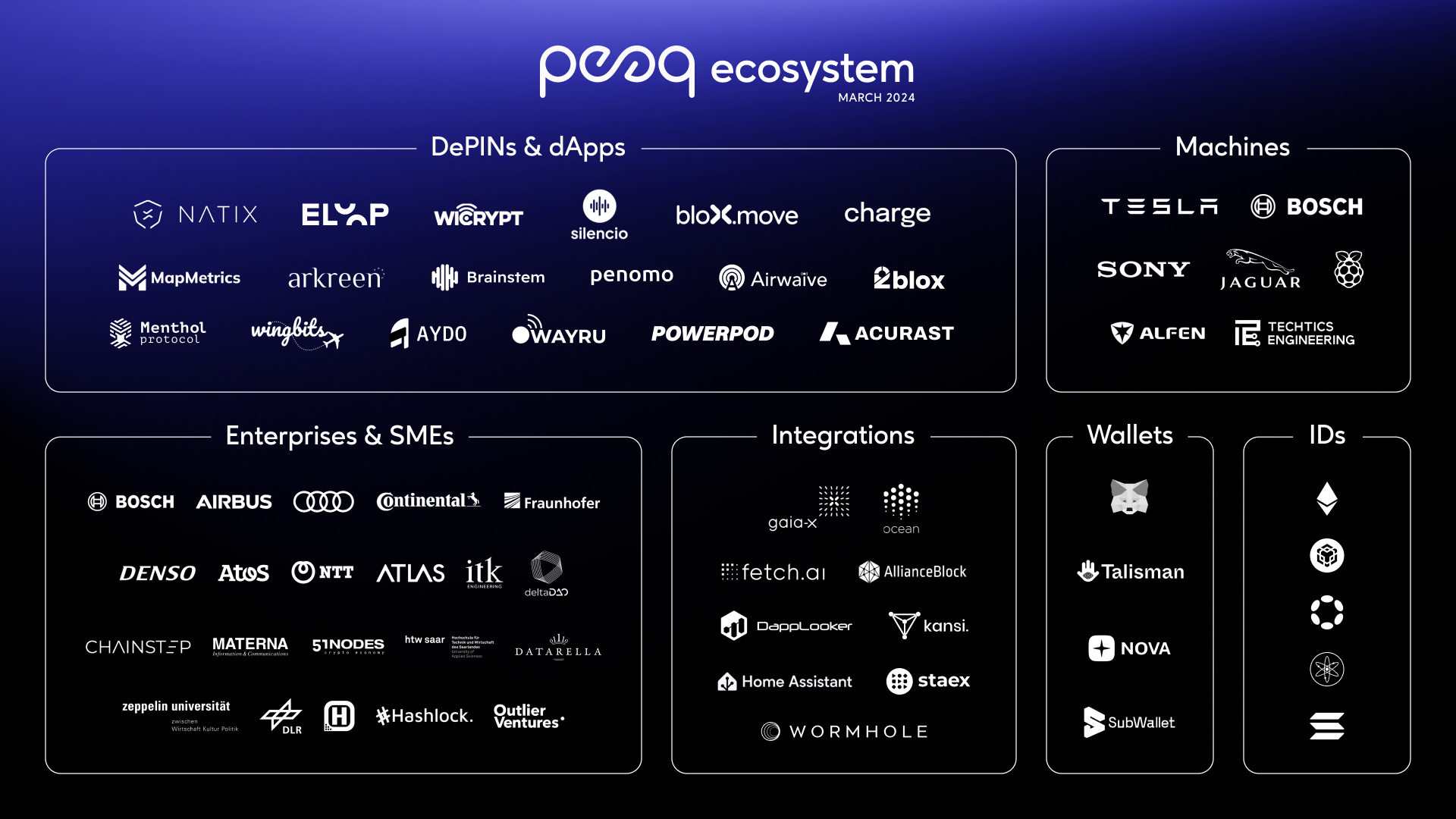2024: DePIN is the Economy of Things
Generative Ventures is excited to announce our strategic investment in Peaq's $15M series A round.
Peaq is a Layer 1 aggregating DePINs, providing infrastructure for machine identities, financial capabilities, and eventually aggregated ecosystem demand generation. This investment, which we co-led with Borderless Capital, reflects our conviction in the emergent Economy of Things (EoT) and the Decentralized Physical Infrastructure Networks (DePINs) upon which it is built.
The Machine Economy Trade-off
Technology leads to social and economic changes — rendering certain professions obsolete while concurrently giving rise to new ones. Automation and Artificial Intelligence represent the latest frontier, one in which unemployment and economic disenfranchisement loom large. In the dystopian future, humanity is sidelined, managed algorithmically by robot algorithms under the banner of a select few corporations.
Web3 networks like Peaq offer us a more positive alternative – what if the advancement of intelligent machines and automation could lead to a more equitable distribution of wealth? Tokens allow users to benefit from technological change.
Peaq builds for a future where vehicles, machines, and devices become participants in the economy, capable of transacting autonomously while ensuring privacy, security, and efficiency.
The vision of the Economy of Things is to integrate IoT, AI, and Web3 technologies, such that ownership and economic rights over machines, vehicles, robots, and devices are reclaimed by the individuals and communities that use them. In 2023, the network was used by over 20 DePINs, alongside ongoing work with major corporate partners like Bosch, Denso, and Airbus. This trend will only accelerate.
DePIN Economic Growth
Our investment thesis is focused on the growth of economic activity and GDP unlocked by the platform shifts of blockchain networks. DePINs offer real world, practical applications demonstrated by usage and adoption. Tokens are used to bootstrap networks, incentivizing contributions of real-world services through physical infrastructure. This model lowers the financial barriers to entry and bootstraps large-scale infrastructure that typically requires significant capital outlays.
As a result, DePIN applications are quite diverse – ranging from peer-to-peer electric vehicle charging networks where users earn rewards for making their charging stations available, to community-operated decentralized ride-sharing services. In the past, most were organized as “coin networks”, standing up their own Layer 1 network in order to avail the project to the bootstrapping capital needed in the early crowd-funding phase.
However, running the entire network for a single use-case is less valuable once the project is bootstrapped. To that end, we expect more mature DePINs to look like token-powered applications, similar to those of the DeFi sector, rather than to focus on maintaining validators and blockchain security. At later stages, the main challenge for DePIN applications is going to market and gathering customers, rather than maintaining a supply of hardware.
Therefore, to unlock the DePIN economy, we believe a specialized player like Peaq has an opportunity to build a strong industry position as a DePIN-focused chain. Such specialized focus allows Peaq to maintain a protocol that effectively addresses issues of throughput and transaction costs, while delivering a suite of ready-to-use DePIN functionalities that are bespoke to the needs of digital twins.
If you're an entrepreneur looking to launch a DePIN, a startup or organization looking to join the EoT ecosystem, or a machine manufacturer looking to scale and unlock new revenue streams - Peaq can help.
The Peaq team is also looking to hire top tier talent.


